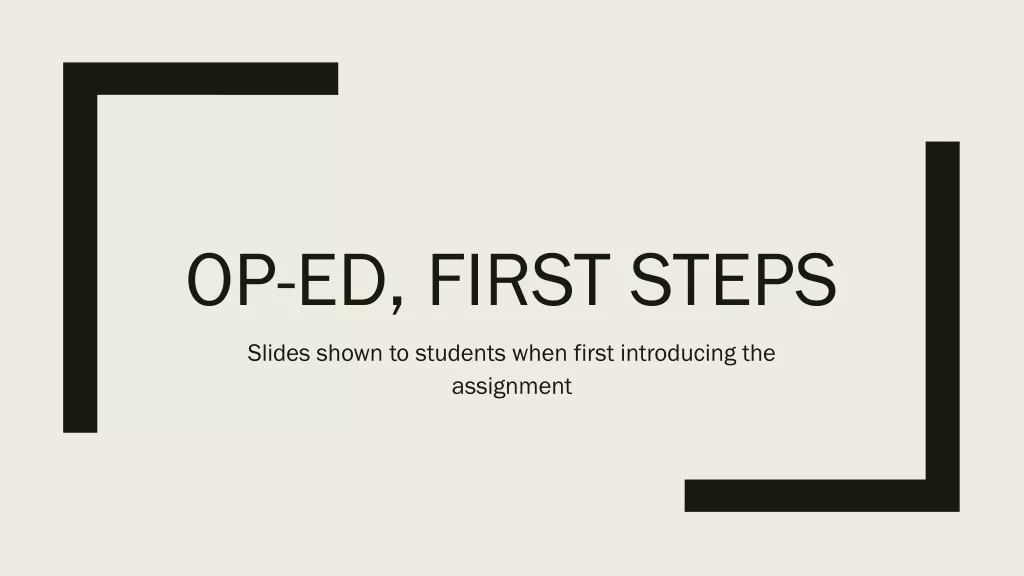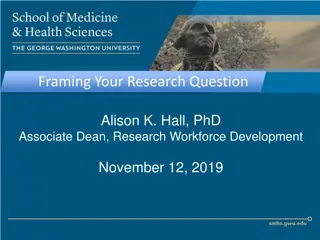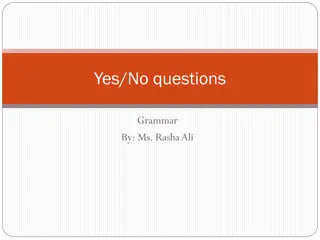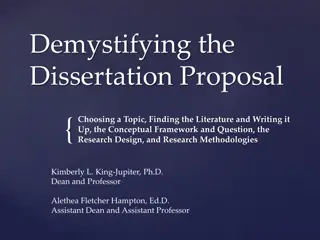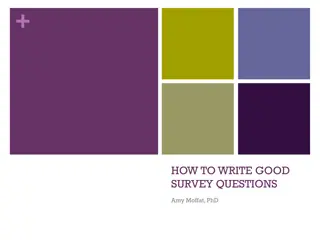Crafting Effective Research Questions: A Guide
Explore the process of narrowing down a research topic, developing focused questions, and evaluating the clarity and complexity of your research queries. Learn to hypothesize and refine your questions through examples of unclear versus clear, unfocused versus focused research questions.
Download Presentation

Please find below an Image/Link to download the presentation.
The content on the website is provided AS IS for your information and personal use only. It may not be sold, licensed, or shared on other websites without obtaining consent from the author.If you encounter any issues during the download, it is possible that the publisher has removed the file from their server.
You are allowed to download the files provided on this website for personal or commercial use, subject to the condition that they are used lawfully. All files are the property of their respective owners.
The content on the website is provided AS IS for your information and personal use only. It may not be sold, licensed, or shared on other websites without obtaining consent from the author.
E N D
Presentation Transcript
Narrowing and Developing a Research Question Bountiful High Library Adapted from George Mason University Writing Center
Once you have a basic idea of your topic, be sure to narrow it. Look at information on the basic topic to help you. You can also use the Topic Finder in the Gale database to help you. Basic to Focused Narrowing a Topic Ask yourself: Ask What subtopics relate to the broader topic? What questions do these sources raise? What do you find interesting about the topic? Begin gathering information. Compile research on your narrowed topic before solidifying your research question. Begin
Explore -Ask open-ended how and why questions about your general topic. -Consider the so what of your topic. Why does this topic matter to you? Why should it matter to others? -Reflect on the questions you have considered. Identify one or two questions you find engaging and which could be explored further through research. Going from a Topic to a Research Question
Determine and Evaluate -What aspect of the more general topic you will explore? -Is your research question clear? -Is your research question focused? (Research questions must be specific enough to be well covered in the space available.) -Is your research question complex? (Questions shouldn t have a simple yes/no answer and should require research and analysis.)
Hypothesize -If you are making an argument, what will you say? -Why does your argument matter? -How might others challenge your argument? -What kind of sources will you need to support your argument?
Sample Research Questions
Unclear Clear How are online users experiencing or addressing privacy issues on social networking sites like Twitter and Facebook? Clarity Why are social networking sites harmful?
Unfocused Focused What is the effect on the environment from global warming? How is glacial melting affecting penguins in Antarctica? Focused
Complex (but not Confusing) Simple Simple vs. Complex What are common traits of those suffering from diabetes in America, and how can these commonalities be used to aid the medical community in prevention of the disease? How are doctors addressing diabetes in the U.S.?
George Mason University Writing Center. (2008). How to Write a Research Question. Retrieved from http://writingcenter.gmu.edu/?p=307 Work Cited



